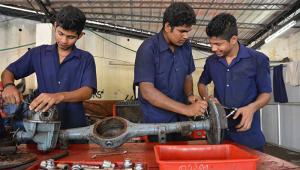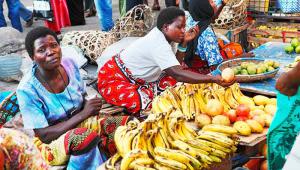A report by the financial services firm, published today, found that despite a relative slowdown, FDI flows into the region in 2015 increased by 7%. This made Africa one of only two regions to see growth in FDI last year.
EY pointed out that while the value of capital projects was down year-on-year, from $88.5bn in 2014 to $71.3bn in 2015, this was still higher than the 2010-14 average of $68bn. Similarly, the number of jobs created was down from 2014, but ahead of the 2010-14 average.
Ajen Sita, Africa chief executive officer at EY, noted that this was achieved in the context of unprecedented volatility in global markets.
“We’ve witnessed the collapse of commodity prices and a number of currencies across Africa,” he highlighted. “With reference to the two largest markets, starting with South Africa, we saw GDP growth decline sharply to below 1% and the country avert a credit ratings downgrade; in Nigeria, the slowdown in that economy was impacted further by the decline in oil price and currency devaluation pressure.”
He added that while economic growth across the region “is likely to remain slower than it has been over the past 10-15 years”, the main reasons for the slowdown are not unique to Africa.
FDI flows still remain strong, with the biggest boost coming to countries like Kenya in east Africa. In 2015, the region recorded its highest share of continent-wide FDI, at 26.3% of total projects.
Southern Africa, however, remained the largest investment region on the continent, despite a 11.6% fall in projects on 2014.
In terms of capital investment on the continent, west Africa outpaced southern Africa as the leading recipient on the continent. Its FDI flows overall saw a 16.2% rebound on 2014.
North Africa, which has also seen big declines in recent years due to political turbulence and security concerns, saw an 8.5% year-on-year growth in FDI projects.
In sub-Saharan Africa however, these projects are increasing at a much faster rate.
Michael Lalor, EY’s Africa Business Centre leader, also remarked on the continent’s robust flows in a context of heightened concerns over economic and political risks across the region.
He said a “key factor” is a “structural shift in FDI” from a “high concentration of source countries and destination markets and sectors, to a far more diverse FDI landscape”.
“As a result, risks and opportunities are being spread much wider, and there is no longer an overdependence on a limited group of investors to drive FDI performance.”
EY’s report also noticed a shift in the sectors focused on by FDI. Rather than extractive industries, including mining and metals, coal, oil and natural gas, consumer-facing industries are now attracting a much more substantial portion of foreign investments.
Sectors including consumer products and retail, financial services, and technology, media and telecommunications, accounted for 44.7% of FDI projects in 2015.
Business services, and automotive, clean technology and life sciences, are also rising in significance and likely to become the “next wave” for investors, EY said.
Sita puts this down to a shifting focus among companies, which were formally focused on exploiting underdeveloped African markets.
“A combination of factors – including tightening economic conditions, increasingly well-informed consumers and citizens, intensifying competition, a heightened sense of global geopolitical uncertainty, and shifting priorities from global or regional headquarters – is now driving a change in focus towards striking a greater balance between growth, profitability and risk management,” Sita said.
As well as historical investors, including the US (Africa’s largest investor, with 96 projects valued at $6.9bn), the UK and France, new investors such as the United Arab Emirates and India are showing an interest in Africa.













